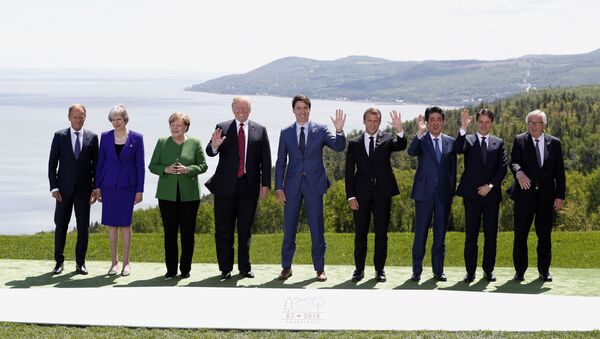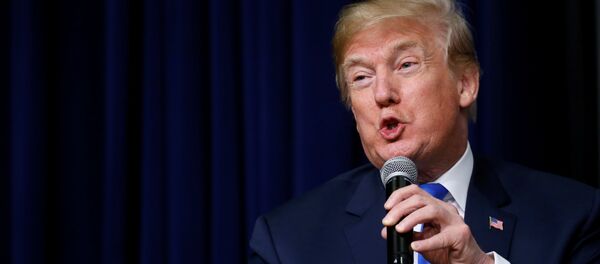"Russia and our economy have long been prepared for new sanctions, for everything. I do not think that we will suffer losses," Dzhabarov said.
The lawmaker called the G7 policy on sanctions "inertial," pointing that the group itself, not Russia, was contributing to the destabilization in the world.
"They accuse us of destabilization. However, if it were not for Russia and its fight against IS [the Islamic State terrorist group, outlawed in Russia], the situation would have collapsed. The destabilization is being created by the G7 itself," Dzhabarov argued.
On Saturday, the G7 leaders adopted a joint communique following the two-day summit in Quebec, which also touched upon their policy toward Russia. The nations urged Moscow to "cease its destabilizing behavior to undermine democratic systems and its support of the Syrian regime," and threatened Russia with further restrictive measures. The document also supported the UK accusations against Moscow of the nerve agent attack in the town of Salisbury.
Since 2014, relations between Russia and the West have deteriorated amid the crisis in Ukraine. The United States, the European Union and some of their allies have introduced several rounds of anti-Moscow sanctions after Crimea's reunification with Russia and the latter's alleged involvement in the Ukraine conflict.
Russia has refuted all the accusations and taken retaliatory economic restrictions.



